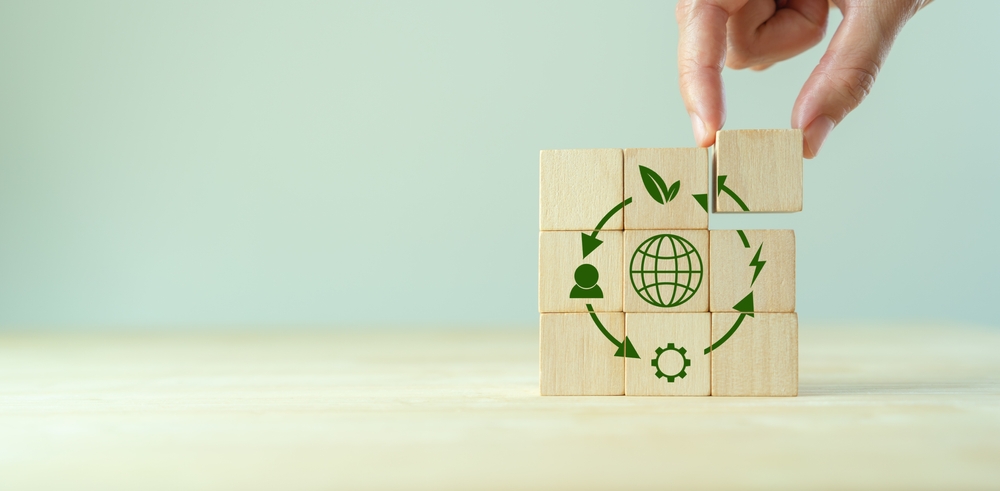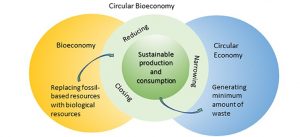
Unlocking the Potential of Circular Bioeconomy: A Path to a Sustainable Future
In our brand new Environmental Sustainability (ES) blog series, our undergraduate student guest authors will be discussing all things Environmental Sustainability. This blog will explore how utilising a Circular Bioeconomy can help us achieve a more sustainable future through environmentally friendly production and consumption.
Blog author: Alessandra Sabatini, Undergraduate Student, School of Biological Sciences.
What is a circular economy?
A circular economy aims to create a sustainable economic system by establishing a closed-loop approach where resources are reused and recycled with minimal waste.
What is a bioeconomy?
A bioeconomy involves the use of renewable biological resources to produce biofuels, bioproducts, and biopower for economic, environmental, and social benefits.
Circular Bioeconomy
Both concepts complement each other in the circular bioeconomy, which is essentially the intersection between the circular economy and the bioeconomy. It focuses on closing the carbon cycle and creating an additional carbon sink capability in the technosphere by utilizing biogenic carbon for products and materials that are circulated in the same or improved form.

Schematic representation of a circular bioeconomy resulting from the intersection between circular economy and bioeconomy concepts. From Tan and Lamers (2021)
How will this help us?
A circular bioeconomy can help us achieve a more sustainable future by closing the carbon cycle and utilizing renewable biological resources to produce renewable biofuels, bioproducts, and biopower for economic, environmental, and social benefits. It represents a framework that focuses on creating a closed-loop system in which materials are used, reused, and recycled continuously, with minimal waste generation. This can lead to reduced resource depletion, waste generation, and carbon emissions, while also promoting economic growth, job creation, and environmental sustainability.
Read the original review article.
The content discussed in this article aligns with United Nations Sustainable Development Goals:
- 12: Responsible consumption and production
- 13: Climate action
To find out more about Environmental Sustainability: visit the Faculty’s intranet page, website or contact srbmh@manchester.ac.uk. For more information on Environmental Sustainability at the University watch this short film or visit their website.

0 Comments